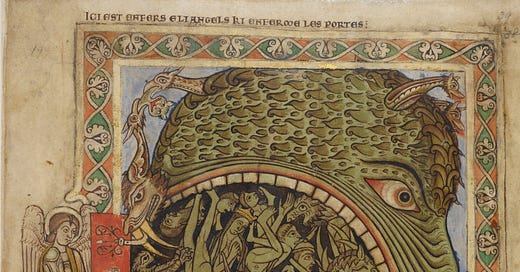The Scapegoat’s Journey: Azazel, the Abyss, and the Irony of Redemption
Ancient rituals and divine irony converge in salvation.
In Jewish legends, Azazel is a demon or evil spirit to whom, in the ancient rite of Yom Kippur (Day of Atonement), a scapegoat was sent bearing the sins of the people. According to Britannica,
Two male goats were chosen for the ritual, one designated by lots “for the Lord,” the other “for Azazel” (Leviticus 16:8).
Incidentally, in the Book of Enoch, Azaze…
Keep reading with a 7-day free trial
Subscribe to Philosophy of Language to keep reading this post and get 7 days of free access to the full post archives.




